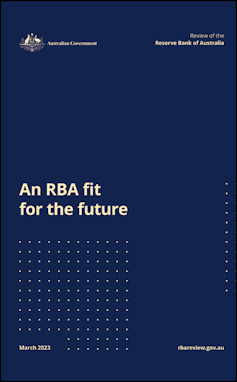No, the RBA review won't mean handing the bank's decisions to part-time outsiders
- Written by Renee McKibbin, Professor of Economics, Crawford School of Public Policy, Australian National University

Misinformation is circulating about recommendations concerning the Reserve Bank board made by the RBA Review[1], of which I was a member.
Among the claims are that the new monetary policy board we have proposed would “weaken[2]” incoming governor Michele Bullock’s power over interest rates, and that giving part-time appointees majority control over important decisions would be a “dangerous mistake[3]”.
The claims need to be corrected.
The Review of the Reserve Bank of Australia[4], conducted between July 2022 and March 2023, made 51 recommendations[5], which Treasurer Jim Chalmers is now considering.







